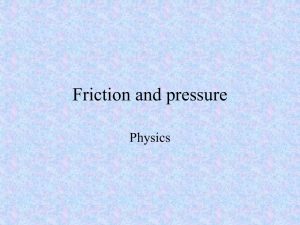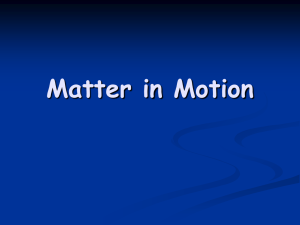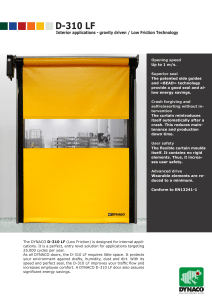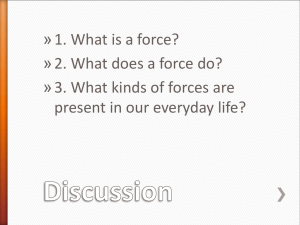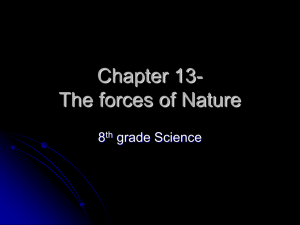Friction
advertisement
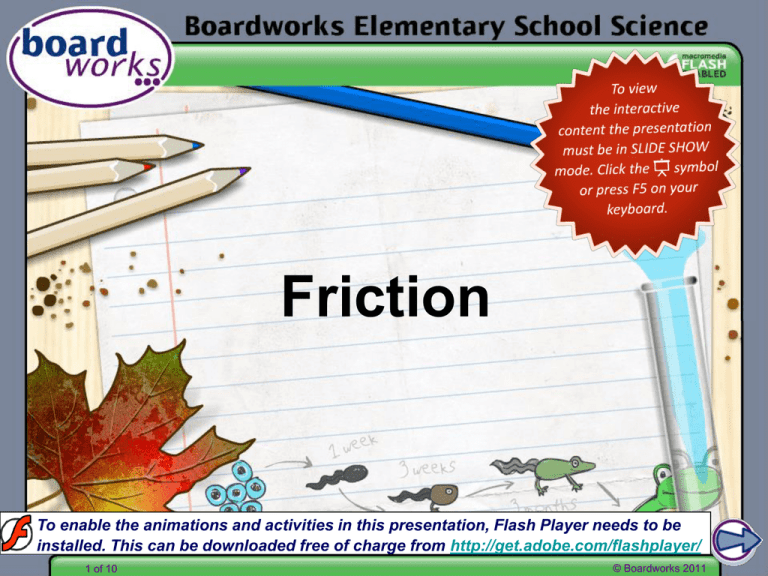
Friction To enable the animations and activities in this presentation, Flash Player needs to be installed. This can be downloaded free of charge from http://get.adobe.com/flashplayer/ 1 of 10 © Boardworks 2011 This sample is an excerpt from one presentation on Friction in Boardworks Elementary School Science, which contains 44 interactive presentations in total. © Boardworks 2011 2 of 10 Friction 3 of 10 © Boardworks 2011 Friction The ‘hills and valleys’ of the two surfaces snag as the objects rub against each other. The resisting force caused by the snagging of the surfaces is called friction. If the two surfaces are very rough, they will cause a large amount of friction. If the two surfaces are smoother, they will cause only a small amount of friction. 4 of 10 © Boardworks 2011 Friction Two surfaces don’t have to slide over each other to create friction. Friction occurs between an object and a surface when the object is stationary. An object will only move when the force applied to it is greater than the friction between the object and the surface on which it is sitting. Would it be more difficult to move an object on a smooth or a rough surface? How could we find out? 5 of 10 © Boardworks 2011 Friction Which surface do you think will require the greatest force in order to make the object start moving? Which surface has the largest friction? Which surface has the smallest friction? These are the surfaces that we will test. carpet 6 of 10 vinyl wood © Boardworks 2011 Friction 7 of 10 © Boardworks 2011 Friction 8 of 10 © Boardworks 2011 Friction 9 of 10 © Boardworks 2011 Friction What type of road surface is needed to keep cars and bicycles from skidding? Make a list of examples where high or low friction occurs. Describe surfaces that cause high and low friction. 10 of 10 © Boardworks 2011

